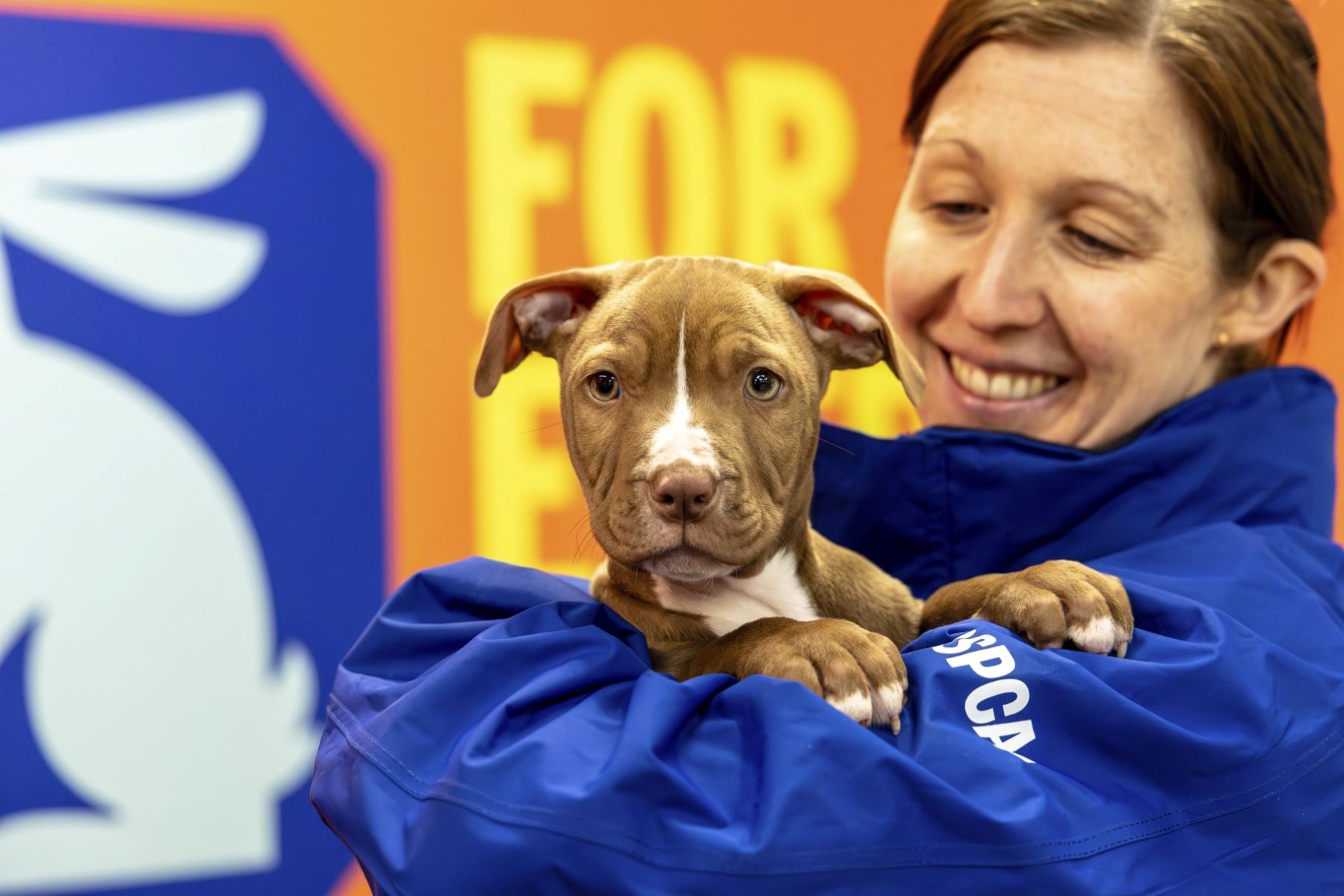
Did you know the Royal Society for the Prevention of Cruelty to Animals (RSPCA) is one of the oldest animal welfare organizations in the world? Founded in 1824, the RSPCA has been tirelessly working to prevent animal cruelty and promote animal welfare for nearly two centuries. With an annual budget of £140 million, the organization operates 14 animal centers and 137 branches across England and Wales. Their dedicated inspectorate, consisting of 341 frontline rescuers, investigates thousands of animal cruelty cases each year. Despite its achievements, the RSPCA faces modern challenges, including criticism over its involvement in the farming industry. Let's dive into 45 fascinating facts about this influential organization.
Key Takeaways:
- The RSPCA, founded in 1824, is dedicated to preventing animal cruelty and promoting welfare. It operates on a £140 million budget, with 341 frontline rescuers responding to 51,505 complaints in 2021.
- Despite its historical achievements, the RSPCA faces criticisms for its involvement in the farming industry. The organization has played a significant role in influencing animal welfare legislation, including the Animal Welfare Act and the ban on wild animals in circuses.
The Origins and Mission of the RSPCA
The Royal Society for the Prevention of Cruelty to Animals (RSPCA) has a long and storied history. Its mission is to prevent animal cruelty and promote animal welfare. Let's dive into some fascinating facts about this organization.
-
The RSPCA was founded in 1824 by a group of individuals who met in Old Slaughter's Coffee House in London. This meeting was crucial in forming the society aimed at preventing animal cruelty.
-
The mission of the RSPCA is to prevent animal cruelty and promote animal welfare. This mission guides the organization's values and policies, ensuring all actions improve animal lives.
-
Funding for the RSPCA primarily comes from voluntary donations. This funding model allows the organization to allocate resources effectively, ensuring all money is put back into day-to-day operations and animal welfare activities.
-
The RSPCA operates on an annual budget of £140 million. This significant investment is crucial for maintaining the organization's extensive network of animal centers, hospitals, and inspectorate services.
RSPCA's Reach and Operations
The RSPCA's reach extends across England and Wales, with numerous branches and animal centers. Their operations are vast and varied, focusing on rescuing and rehabilitating animals.
-
The RSPCA operates 14 animal centers across England and Wales, providing care, rehabilitation, and rehoming for abused, neglected, and abandoned animals.
-
There are 137 RSPCA branches across England and Wales, each operating as a separate charity but with ultimate responsibility to the national society. These branches run 45 animal centers and offer various services such as advice, microchipping, and subsidized animal treatments.
-
The RSPCA inspectorate is a crucial component of the organization, with 341 frontline rescuers working tirelessly to prevent animal cruelty. Each inspector drives an average of 80 miles per day, responding to reports of animal neglect and abuse.
-
In 2021, the RSPCA investigated and closed 51,505 complaints of alleged animal cruelty. This significant number underscores the organization's commitment to addressing animal welfare issues.
Addressing Animal Cruelty
The RSPCA takes numerous steps to address and prevent animal cruelty. Their efforts include investigations, prosecutions, and emergency responses.
-
The animals most frequently reported for incidents in 2020 were dogs (56,563 incidents) and cats (55,667 incidents). These figures highlight the prevalence of animal cruelty cases involving these species.
-
In 2021, the RSPCA secured 751 convictions in court, a 19.4% increase from the 629 convictions in 2020. This demonstrates the organization's effectiveness in pursuing justice for animal cruelty cases.
-
During the summer months, the RSPCA receives up to 1,000 extra calls a day to its emergency phone line. This surge in calls underscores the increased need for animal welfare services during warmer weather.
-
In the summertime, the RSPCA collects an abandoned animal every hour. This statistic highlights the ongoing issue of animal abandonment and the need for continuous intervention.
Historical Impact and Milestones
The RSPCA has been instrumental in shaping animal welfare laws and policies. Their historical milestones reflect their enduring commitment to animal welfare.
-
On average, there is one RSPCA officer for every 162,000 people in England and Wales. This ratio compares favorably to the police force, with one frontline police officer for every 566 members of the public.
-
In 2020, the RSPCA issued 4,245 improvement advice notices and verbal warnings, along with 701 warning notices. These actions demonstrate the organization's focus on education and improvement rather than punishment.
-
The RSPCA has been instrumental in shaping animal welfare laws and policies. The first law protecting animals, Martin's Act (1822), was a direct result of the organization's efforts. The RSPCA has continued to influence legislation, including the Protection of Animals Act and the Animal Welfare Act.
-
While primarily operating in England and Wales, the RSPCA also engages in international outreach, working across Europe, Africa, and Asia to promote animal welfare. This global approach has inspired the creation of similar organizations worldwide.
-
Key historical milestones include the abolition of bear and bull baiting, the banning of cruelty to dogs and domestic animals, and the establishment of the RSPCA Fund for Sick/Wounded Horses during World War I. These achievements reflect the organization's enduring commitment to animal welfare.
-
Queen Victoria granted permission for the RSPCA to add ‘Royal’ to its name in 1838. This royal endorsement significantly boosted the organization's reputation and influence.
-
In 1838, James Piper, an SPCA inspector, died from injuries sustained while trying to stop a cock-fight. This act of bravery underscores the risks and sacrifices made by RSPCA inspectors in their pursuit of preventing animal cruelty.
Modern Challenges and Criticisms
Despite its historical achievements, the RSPCA faces modern challenges. Criticisms have arisen, particularly regarding their involvement in the farming industry.
-
The RSPCA expanded its branches to Dublin, Wakefield, and Plymouth, among other locations. This expansion facilitated the organization's reach and impact, enabling it to address animal welfare issues more effectively.
-
The RSPCA's model has been adopted by various countries, leading to the establishment of similar organizations such as the American Society for the Prevention of Cruelty to Animals (ASPCA) in 1866 and the Royal New Zealand Society for the Prevention of Cruelty to Animals (RNZSPCA) in 1882.
-
One significant issue is its involvement in the farming industry, where it has been criticized for endorsing practices that contradict its mission. The RSPCA's Assured scheme has been accused of promoting factory farming conditions that are detrimental to animal welfare.
-
The RSPCA's Assured scheme has been criticized for granting approval to farming practices that are not aligned with high welfare standards. Reports have highlighted significant breaches of animal welfare laws on farms approved by the RSPCA, including overcrowding and poor living conditions.
-
The RSPCA's involvement in the farming industry has led to a reputational crisis. Critics argue that the organization's endorsement of factory farming normalizes and legitimizes animal suffering on an industrial scale. This criticism has sparked debates about the RSPCA's role in promoting animal welfare versus supporting industrial agriculture.
-
Chris Packham, the RSPCA's president, has expressed concerns about the organization's involvement in the farming industry. He believes that the RSPCA should lead the transition to plant-based and alternative proteins, rather than endorsing practices that perpetuate animal suffering.
Legislative Achievements
The RSPCA has played a significant role in influencing animal welfare legislation. Their efforts have led to several important laws and regulations.
-
The Animal Welfare Act, passed in 2006, is a significant legislative achievement for the RSPCA. This act increased prison sentences for animal cruelty from a maximum of six months to five years, reflecting the seriousness with which animal welfare is viewed in the UK.
-
In 2023, cat microchipping legislation was passed in England, building on the compulsory microchipping of dogs. This legislation aims to improve animal identification and reduce the number of lost pets.
-
The ban on wild animals in circuses, implemented in England in 2020 and in Wales in 2020, is another notable achievement. This ban was the result of decades-long campaigning by the RSPCA and other animal welfare organizations.
Historical Timeline and Contributions
The RSPCA's history is marked by significant milestones and contributions to animal welfare. Their efforts have had a lasting impact on society.
-
The RSPCA has a rich history, marked by significant milestones such as the establishment of the RSPCA Fund for Sick/Wounded Horses during World War I and the awarding of 37 silver medals to inspectors who risked their lives during World War II.
-
In the 1950s, the RSPCA introduced Women Patrol Officers, who played a crucial role in animal welfare work. By 1959, there were 24 Women Patrol Officers, including two chief inspectors, demonstrating the organization's commitment to diversity and inclusivity.
-
The RSPCA has also been instrumental in banning cosmetic testing on animals in the UK. This ban, implemented in 1998, reflects the organization's ongoing efforts to protect animals from unnecessary suffering.
-
The Hunting Act, which protects wild animals like foxes, deer, and hares from being hunted by dogs, came into force in 2004. This legislation is a testament to the RSPCA's long-standing campaign against animal hunting.
Private Prosecutions and Controversies
The RSPCA's approach to private prosecutions and its involvement in the farming industry have sparked controversies and criticisms.
-
The RSPCA has a robust system of private prosecutions, which it uses to pursue individuals whose pets have been neglected. However, this approach has been criticized for not extending to large commercial livestock operations, where animal abuse often goes unchecked.
-
Until recently, the RSPCA's website featured recipes for meat and fish, promoting the cooking of animals that bear its stamp of approval. This practice has been criticized for undermining the organization's mission and perpetuating animal suffering.
-
Chris Packham has advocated for the RSPCA to promote plant-based and alternative proteins. This stance aligns with the growing global trend towards veganism and vegetarianism, which are seen as more humane and sustainable options.
-
The RSPCA's reputation has been marred by criticism over its involvement in the farming industry. Critics argue that the organization's endorsement of factory farming contradicts its mission to prevent animal cruelty. This criticism has sparked internal debates and calls for reform within the organization.
-
The Animal Rising report has exposed significant breaches of animal welfare laws on RSPCA-approved farms. This report highlights the need for the RSPCA to reevaluate its Assured scheme and ensure that it aligns with high welfare standards.
-
The Animal Rising report documented 280 legal breaches across 45 farms approved by the RSPCA. These breaches include overcrowding, poor living conditions, and other forms of animal suffering. This evidence underscores the need for stricter enforcement and higher standards in animal welfare.
Leadership and Structure
The RSPCA's leadership and organizational structure play a crucial role in its operations. Understanding this structure helps to appreciate the organization's efforts and challenges.
-
The RSPCA has been accused of running public relations campaigns to aid the perpetrators in selling their products. This practice has been criticized for undermining the organization's credibility and perpetuating animal suffering.
-
Chris Sherwood is the current chief executive officer of the RSPCA. Since the pandemic, the organization has shifted towards remote work, with most employees now working from home or small satellite offices.
-
The RSPCA operates under a regional structure, with three regions (North, South, and East Midlands and Wales). Each region is headed by a regional superintendent who oversees the chief inspectors, inspectors, and animal rescue officers (AROs).
-
The RSPCA has a distinct rank insignia system for its inspectors and AROs. This system reflects the organization's commitment to professionalism and hierarchy within its inspectorate.
-
The RSPCA employs a small number of market inspectors across the country. These inspectors focus on ensuring that animal welfare standards are met in markets and other commercial settings.
-
The RSPCA has two branch trusts, which are separate charities but with ultimate responsibility to the national society. These trusts operate locally and raise funds to support animal welfare work in their regions.
-
In 2024, the RSPCA celebrated its 200th anniversary. This milestone marked two centuries of service to animal welfare, highlighting the organization's enduring commitment to preventing cruelty and promoting animal welfare.
Reflecting on RSPCA's Journey
The RSPCA has a rich history dating back to 1824, making it one of the oldest animal welfare organizations. From its humble beginnings in a London coffee house, it has grown into a major force for animal welfare, operating 14 animal centers and 137 branches across England and Wales. The RSPCA inspectorate works tirelessly, investigating over 51,000 complaints of animal cruelty in 2021 alone. Despite its achievements, the organization faces criticism, particularly regarding its involvement in the farming industry. The RSPCA Assured scheme has been under fire for endorsing practices that contradict its mission. However, the organization continues to push for legislative changes, like the Animal Welfare Act and bans on wild animals in circuses. As it approaches its 200th anniversary, the RSPCA remains a crucial advocate for animal welfare, though it must address modern challenges to stay true to its mission.
Frequently Asked Questions
Was this page helpful?
Our commitment to delivering trustworthy and engaging content is at the heart of what we do. Each fact on our site is contributed by real users like you, bringing a wealth of diverse insights and information. To ensure the highest standards of accuracy and reliability, our dedicated editors meticulously review each submission. This process guarantees that the facts we share are not only fascinating but also credible. Trust in our commitment to quality and authenticity as you explore and learn with us.


